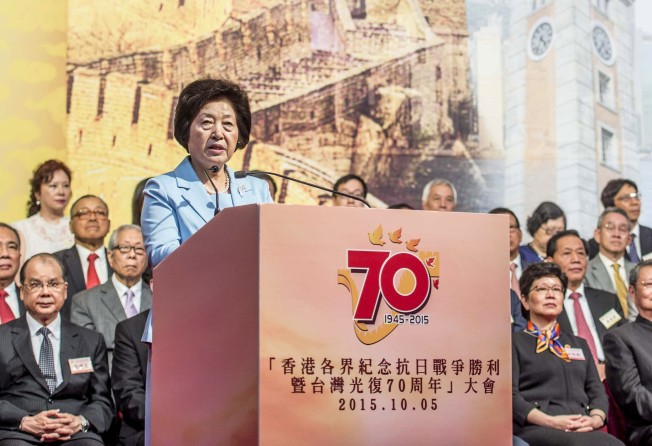Hong Kong's district council elections will be a sign of things to come
Polls will see a new generation of candidates come forward, as camps plan for succession

Young people represent change. It's a rule of nature, as represented by a Chinese saying: "The rear waves of the Yangtze River always drive on those before."
Such is the case for next month's district council elections - the first major polls since Occupy. The polls have a new feature, with the last few dozen appointed seats on the councils scrapped, meaning all 458 district councillors will now be elected. This is not only a step forward for democratisation but also a good opportunity for young candidates to take the political stage, with a number of new names having emerged since nominations opened two weeks ago.
It was against this backdrop that Sun Chunlan , head of the Communist Party's United Front Work Department - the unit responsible for maintaining ties with sectors and individuals outside the party at home and abroad - paid her first visit to Hong Kong last week.
Sun, a member of the powerful Politburo who took over the department from the disgraced Ling Jihua, highlighted the importance of youth in a speech in the city. She said young people were the "future pillars of society", but needed a stronger sense of the country's development.
After last year's Occupy protests, Beijing shifted its focus in Hong Kong matters to youth issues. One of its concerns is upward mobility for young people, including in the political sphere. In this regard, next month's elections can be a watershed in Hong Kong's political development, as new candidates put themselves forward.
As such, it was no surprise that some analysts saw Sun's visit as having one particular purpose: to send a fresh call for unity to the city's far-from-united pro-establishment camp. The camp cannot afford defeats this time for two reasons: firstly, some of its challengers are young activists from the Occupy movement; secondly, the district polls are widely seen as a precursor to next year's Legislative Council election. Win or lose, the district elections can have significant consequences.
It's no wonder, then, that the camp's nominations show clear strategic considerations. For the "big brother" Democratic Alliance for the Betterment and Progress of Hong Kong, veteran Ip Kwok-him will give up his seat; then another heavyweight, the Federation of Trade Unions' "queen of votes" Chan Yuen-han also opted out of the contest.
While this does not rule Ip and Chan, both lawmakers, out of next year's Legco poll, it means their district seats will go to younger candidates. For years, Ip has served as de facto "whip" for the DAB and the whole pro-establishment camp. It was he who, in June, suggested a walkout by lawmakers in a botched attempt to delay a vote on the government's electoral reform package. Chan, interestingly, was one of the eight lawmakers to stay and vote in favour of the plan, leading to confusion over whether she was not happy with Ip's call or was simply unaware of it.
This confusion prompted calls for a stronger "real whip" for the camp. And, during a DAB visit to Beijing, National People's Congress chairman Zhang Dejiang urged the party and its pro-establishment allies to pull out all the stops in the coming Legco poll. "Get two thirds of [Legco's] 70 seats," Zhang urged. Such a victory would stop pan-democrats blocking government bills.
The mission Zhang set is tough, if not impossible. That's why another veteran DAB lawmaker, former chairman Tam Yiu-chung, has been asked by his party, and probably Beijing, to run for Legco again rather than retire. Tam is expected to become the next "whip" for the camp.
A succession plan can mean some go and some stay. Such a plan is vital to both the pro-establishment and pan-democratic camps, despite party calculations or even infighting. District elections allow the public to take a closer look at their respective strategies.